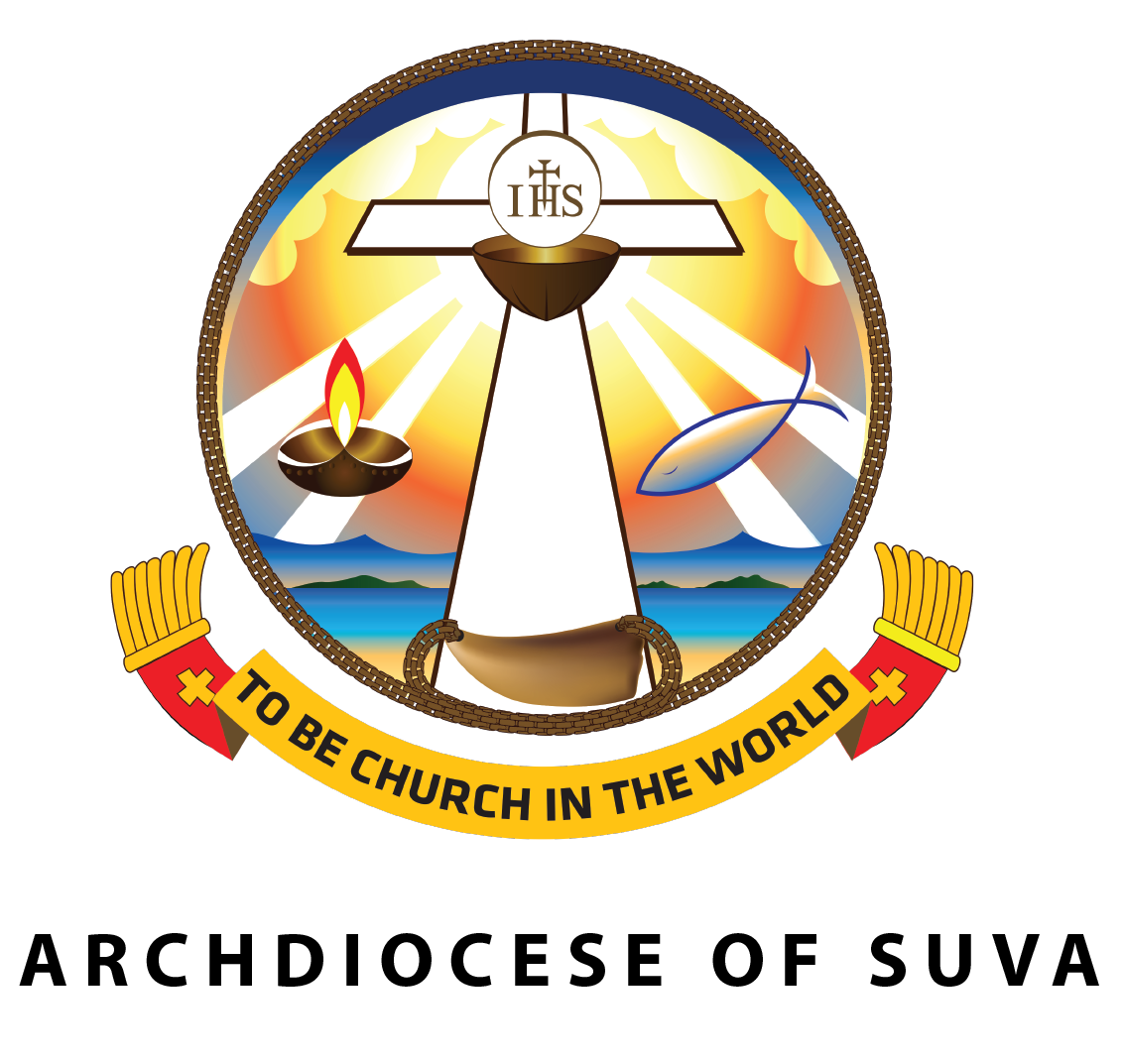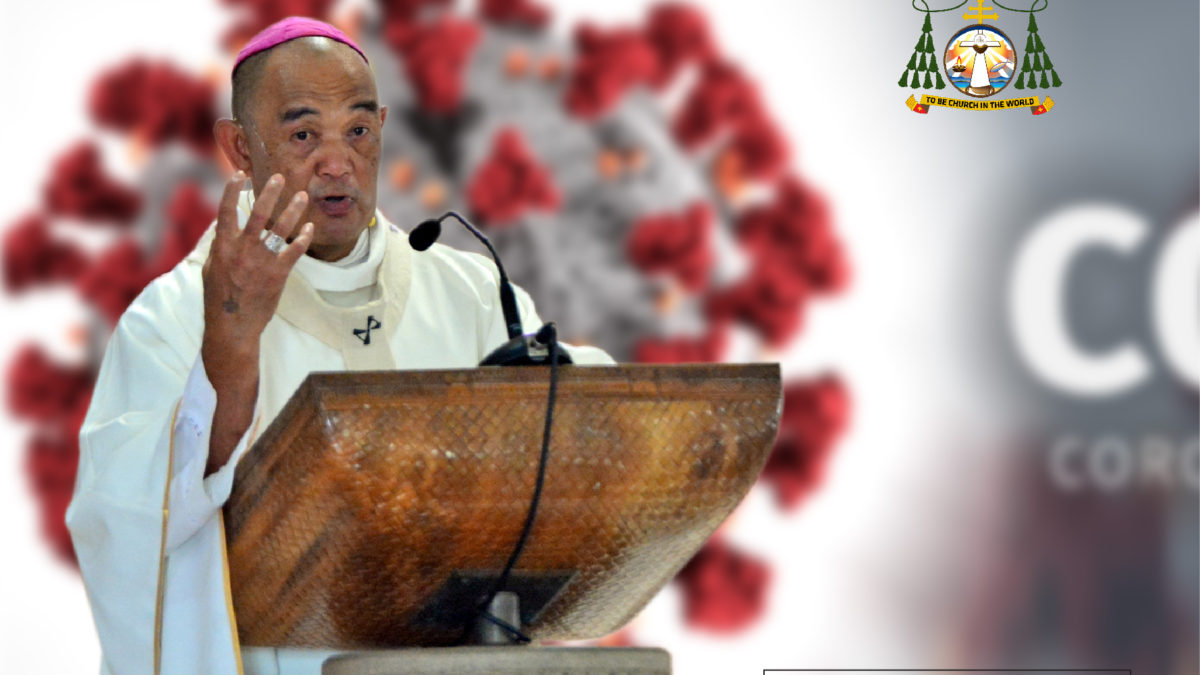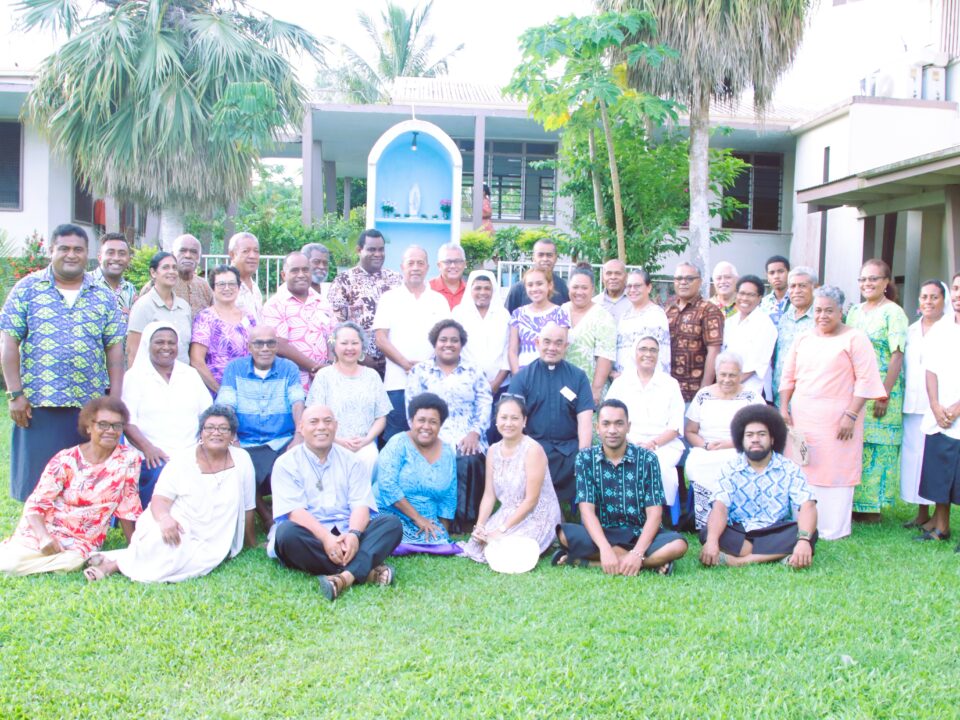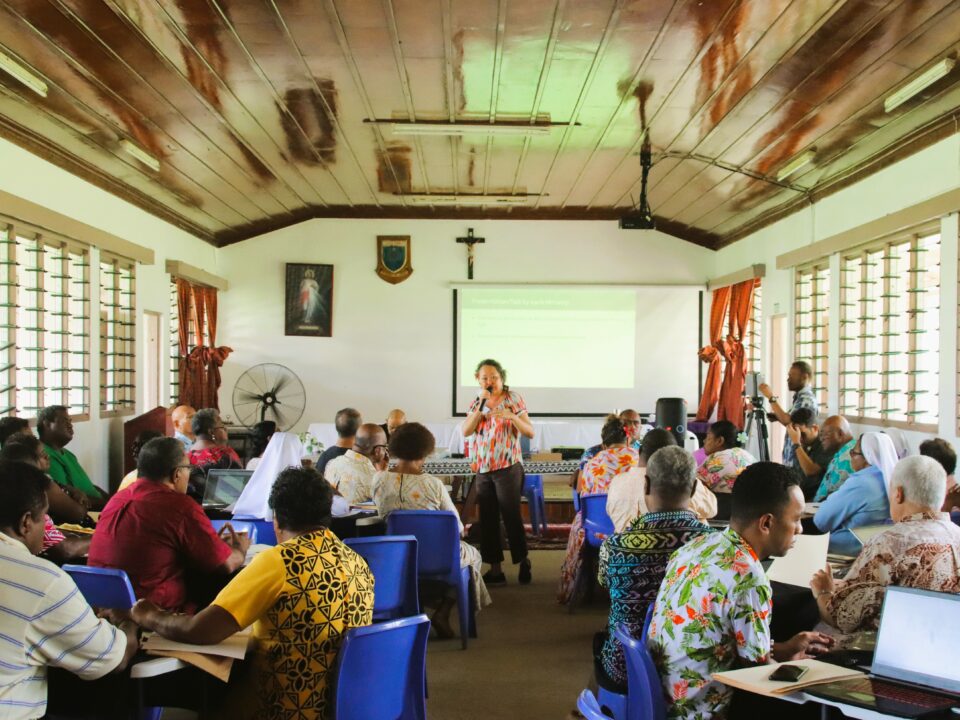ARCHBISHOP PETER LOY CHONG’S PASTORAL LETTER PASTORAL RESPONSE TO COVID-19 & FOREIGN DEBT
30th October, 2020
Dear Brothers & Sisters Christ,
Peace of Christ be with you. Thank you for the good work you are doing in the Lord’s vineyard, particularly during the COVID-19 era.
COVID-19 has impacted Fiji and the world for seven and half months. On 28th October World Health Organization announced that Europe experienced 20% increase in covid19 cases. Meanwhile there have been no reports on the discovery of a covid19 vaccine. We are definitely living in uncertain certain times.
Fiji has recorded 33 cases of Coronavirus (COVID-19), 31 of whom have made a full recovery. Fiji now has 0 active cases of COVID-19 (as of 27th October 2020).
EARLY PASTORAL RESPONSES
In the early stages of the COVID-19, our pastoral responses focused around the celebration of Mass. First, the closing of places of worship, then opening to five and later for twenty people. During the lockdown period we introduced TV and Livestream Mass and daily reflections via Facebook. This was a new experience that made us aware of the important place of social media for the Church. We encouraged home liturgies where families experience graced family time and prayer. During Holy Week I conducted a retreat via Facebook. As we prepared for the ‘New Normal’ we introduced ‘Look Listen Love’ bible sharing for Family, Small Christian Community and schools. Look Listen Love is an effective way for dealing with traumatic experiences.
COVID-19 AND THE ECONOMIC CRISIS
Today we are beginning to understand that COVID-19 in Fiji is more about an economic crisis than the virus infection. Therefore, our pastoral response must address the economic crisis as well as the pandemic.
Fiji’s economy relies heavily on tourism. Tourism contributes nearly 40% to Fiji’s gross domestic product – about FJ$2bn (AU$1.4bn) – and directly or indirectly employs over 150,000 people in various industries. The bulk of Fiji’s tourists come from nearby Australia (41%) and New Zealand (23%), which like many countries around the world have banned international travel.
During the International Monetary Fund (IMF) October 2020 Asia Pacific Regional Economic Outlook in October 21, 2020, Jonathan D. Ostry, Acting Director, Asia and Pacific Department stated that Fiji is one of the countries that has been hit hardest, in the Asia-Pacific Region, by the pandemic – because of heavy dependence on tourism.
Micro-Small and Medium Size Enterprises (MSMSE) contribute 16% of Fiji’s GDP. MSMSEs are also heavily affected by COVID-19 (source: Savenaca Baro, fiji times Wednesday, 28 October, 2020). So, when you put the tourism and MSMSEs GDP contributions together, it means that Fiji’ has lost about 56% of income through COVID-19.
While COVID-19 is affecting Fiji’s economy, foreign debt and the structural adjustment programs of international banks (World Bank, IMF and ADB) are strangling the nation into poverty. The Interfaith E-consultation on Just Finance and Reparations on 02, 12th-16th October 2020 warns us of the economic crisis that COVID-19 and foreign debt bring. The consultation report states: ‘The COVID-19 pandemic has brought the issue of sovereign debt in the spotlight for obvious reasons: mounting a response to the intertwined health and economic crises and ensuring a just and sustainable recovery require tremendous resources. Many countries in the Global South are now confronted with the impossible dilemma of servicing debt on the one hand or saving lives, resorting to more borrowing, and sliding deeper into a debt trap on the other. As the global economic recession deepens, debt defaults are projected to spiral.’
St Pope John Paul II stated that the policies governing structural adjustment loans are in direct contrast to the virtue of solidarity and hence unethical. Research show that foreign debt does not bring about development, rather it creates more poverty.
PASTORAL RESPONSE
The message is clear! COVID-19 and foreign debt will bring about a major economic crisis. We need to plan for an economic crisis as well as the pandemic. The Second Vatican Council calls us to ‘Read the Signs of the Times and interpret them in light of the gospel.’ How do we define the Church’s mission in the context of COVID-19 pandemic and the economic crisis?
Pope Francis’ address to Caritas International on COVID-19 Pope give us some important questions to reflect on:
During the International Monetary Fund (IMF) October 2020 Asia Pacific Regional Economic Outlook in October 21, 2020, Jonathan D. Ostry, Acting Director, Asia and Pacific Department stated that Fiji is one of the countries that has been hit hardest, in the Asia-Pacific Region, by the pandemic – because of heavy dependence on tourism.
Micro-Small and Medium Size Enterprises (MSMSE) contribute 16% of Fiji’s GDP. MSMSEs are also heavily affected by COVID-19 (source: Savenaca Baro, fiji times Wednesday, 28 October, 2020). So, when you put the tourism and MSMSEs GDP contributions together, it means that Fiji’ has lost about 56% of income through COVID-19.
While COVID-19 is affecting Fiji’s economy, foreign debt and the structural adjustment programs of international banks (World Bank, IMF and ADB) are strangling the nation into poverty. The Interfaith E-consultation on Just Finance and Reparations on 02, 12th-16th October 2020 warns us of the economic crisis that COVID-19 and foreign debt bring. The consultation report states: ‘The COVID-19 pandemic has brought the issue of sovereign debt in the spotlight for obvious reasons: mounting a response to the intertwined health and economic crises and ensuring a just and sustainable recovery require tremendous resources. Many countries in the Global South are now confronted with the impossible dilemma of servicing debt on the one hand or saving lives, resorting to more borrowing, and sliding deeper into a debt trap on the other. As the global economic recession deepens, debt defaults are projected to spiral.’
St Pope John Paul II stated that the policies governing structural adjustment loans are in direct contrast to the virtue of solidarity and hence unethical. Research show that foreign debt does not bring about development, rather it creates more poverty.
PASTORAL RESPONSE
The message is clear! COVID-19 and foreign debt will bring about a major economic crisis. We need to plan for an economic crisis as well as the pandemic. The Second Vatican Council calls us to ‘Read the Signs of the Times and interpret them in light of the gospel.’ How do we define the Church’s mission in the context of COVID-19 pandemic and the economic crisis?
Pope Francis’ address to Caritas International on COVID-19 Pope give us some important questions to reflect on:
- We are in a change of era and tomorrow will not be the same. This is the beginning of a new era.
- We cannot use old solutions to the new problems posed by COVID-19 context. Tomorrow will not be the same.
- Be agile and think about the future today, otherwise it will be too late.
- Be prophetic and think what needs to be changed and how to adapt these changes to thechanging context.
- The Church and Caritas have a key role to play to be in these changes and bring hope to thosewho are left on the way side.
- We need to adapt our institution to be able to witness in the new context and taking everybodyon board and to be creative in our solidarity. We need to globalize solidarity – no one should be left out.
COVID-19 asks the Church in Fiji and World challenging questions:
- What will be the new mission for the Archdiocese of Suva in COVID-19 context?
- How are we going to seize the opportunity today to initiate the new beginning that will takeus to 2030?
- How do we want to be actors of charity in the new context?
- What are the crucial things that will affect our future mission?
- What are the opportunities to be seized?
- How is COVID-19 defining the Church’s mission in Fiji?
I have been praying, reflecting, writing, and giving presentations on the importance of COVID-19 to the Church’s mission. In October I conducted recollections with our priests focusing on our pastoral responses to COVID-19 and domestic violence. I also conducted public lectures in Suva, Lautoka and Nadi on the Church’s response to COVID-19. On 29th October I held a meeting with our Caritas Team to reflect on how to define Caritas Fiji’s mission in the context of COVID-19.
I will call a special ‘COVID-19 Pastoral Response Team’ to reflect on our response to COVID-19. This will bring together some economists, doctors, theologians, experts in tourist industry, women and youth to reflect on Church’s mission in the context of COVID
For the parish
- Evaluate and monitor parish finances
- Conduct a survey on job-loss peoples in the parish
- Conduct cost cutting measures
- Consider cutting priest’s stipend and staff salary
- Temporarily stop fundraising
- Reflect on other ways to raise funds for the parish
- Maximize use of parish land
- Credit Union
- Offer parish ground for ‘market day’
- Small Christian Communities as the foundation for hope, faith and love in uncertain timesI also attach a set of PowerPoint presentations that you can use in your parish.I ask for your prayers and support as we face the COVID-19 challenges.Peace
+Archbishop Peter Loy Chong



